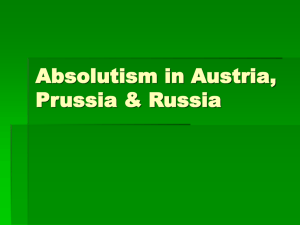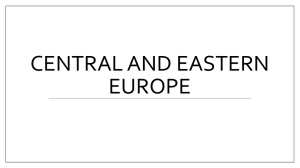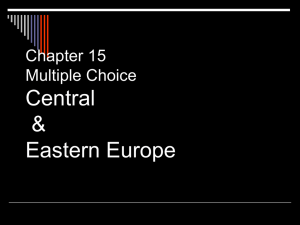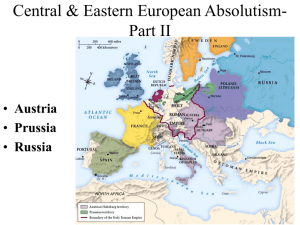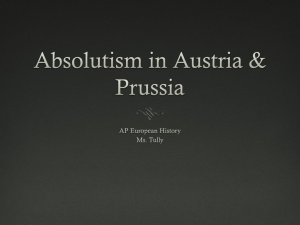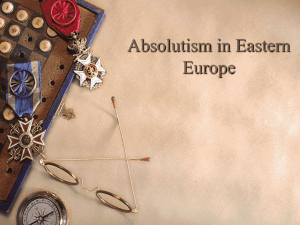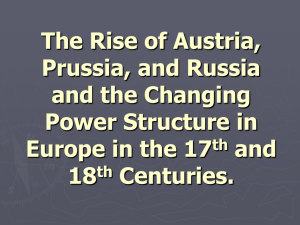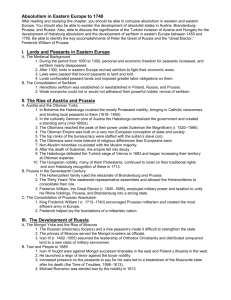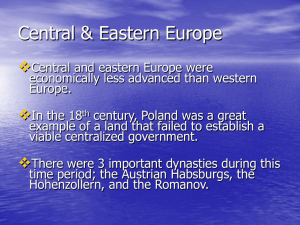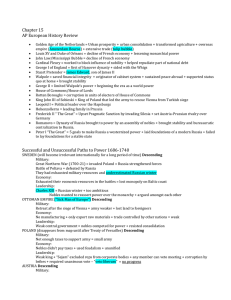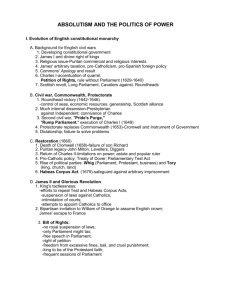Unit 3 Challenges to Royal Authority in Eastern Europe During the
advertisement
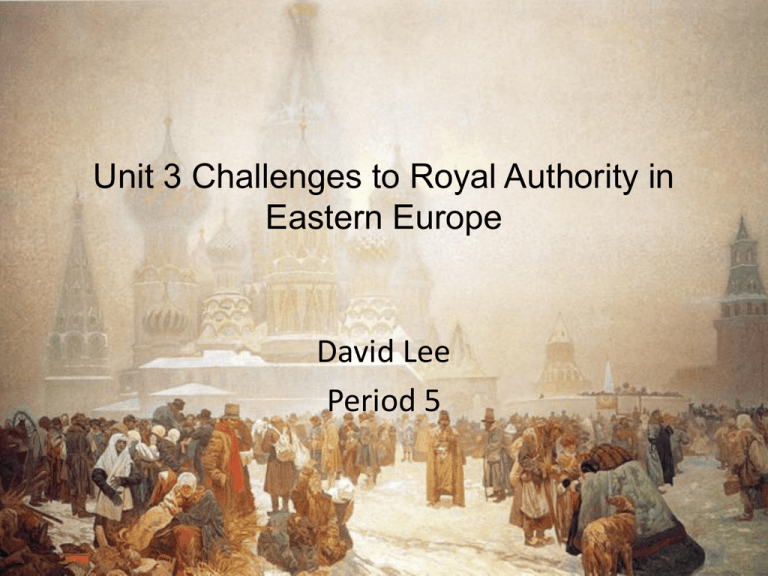
Unit 3 Challenges to Royal Authority in Eastern Europe David Lee Period 5 2011-Describe the challenges to royal authority in Eastern Europe in the 17th and 18th centuries and evaluate the effectiveness of those challenges. (Chapter 17) Thesis The growth of absolutism in Eastern Europe made rulers superior over the lower classes in a way they believed kept their area in balance and growth. Some believed they still needed to challenge royal authority during the rise of Austria, Prussia, and Russia. Although these challenges were to prove something to these rulers, they were known to be crushed and feeble. Map of Eastern Europe Austria A. Czech Nobility (Bohemia) 1. Widely Protestant 2. Dominated the Bohemian Estates 3. Defeated at the Battle of the White Mountain a) against the Habsburgs Battle of the White Mountain B. Ferdinand II 1. The victorious Habsburg king 2. Confiscated Protestant lands and gave them to Catholic nobles 3. Became a purely Catholic state Austria (Cont.) C. The Ottoman Empire 1. Suleiman the Magnificent’s Death a. Economic and social crisis b. Sultans were overthrown or executed Suleiman the Magnificent D. The Habsburg State 1. The Pragmatic Sanction (1713) 2. Hungarian nobility would be against the Habsburg absolutism a. rebellion under Prince Francis Rakoczy (1703) Prussia A. Junkers 1. The nobility and the landowning classes of the Estates of Brandenburg and Prussia 2. Forced to serve under the ruler to receive land 3. Went into a conflict for power with Frederick William I Junker Household Prussia (Cont.) B. Frederick William I’s Response 1. Although the Junkers were against Frederick, he would appoint them as the new officer caste 2. Would be able to control the peasants in the army and estates 3. Achieved loyalty with nobility Frederick William I Russia A. Mongol Yoke 1. Forced Slavic princes to give them slaves a. If slaves rebelled, they were punished with death and destruction B. Cossacks 1. Peasants who fled Russia 2. Created groups and outlaw armies Cossacks Russia (Cont.) C. The Cossack Rebellion 1. Led by former slave, Ivan 2. Slaughtered nobles and officials 3. Called for a true tsar, who would restore freedom and reduce taxes Patriarch Nikon 4. Cossacks were crushed at the gates of Moscow D. The Unity of the Russian Orthodox Church 1. Patriarch Nikon a. introduced reforms to fix “corrupted” Russian ways of worship 2. Common religious people-Old Believers 3. Cossack rebellion a. defeated by the government Conclusion In conclusion, the absolute power of the state dominated those who challenged royal authority. Challenges were from the Bohemian Estates, Hungarians, Junkers, Cossacks, and peasants. Most of these challenges were ineffective and failed to produce results. In some cases, compromises were able to be achieved. The rises of Austria, Prussia, and Russia were only possible because the royal authority won over these challenges. Overall, the absolute ruler or monarchy weren’t able to be overrun by these challenges.
